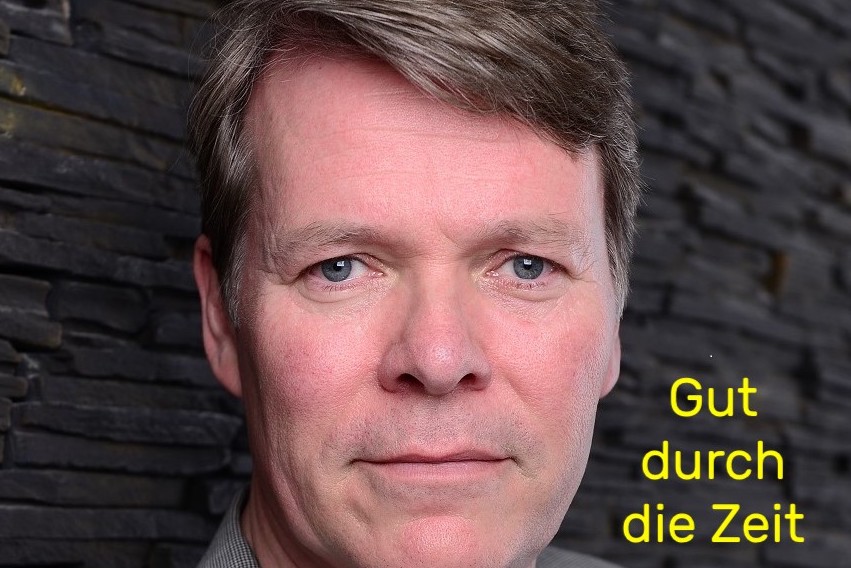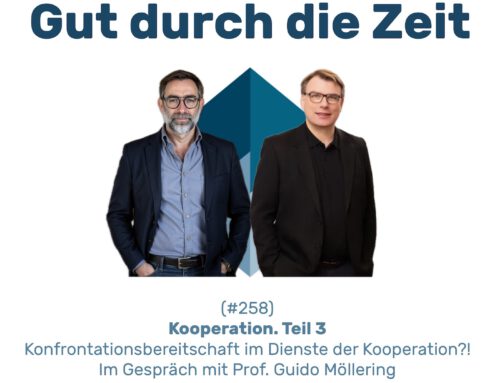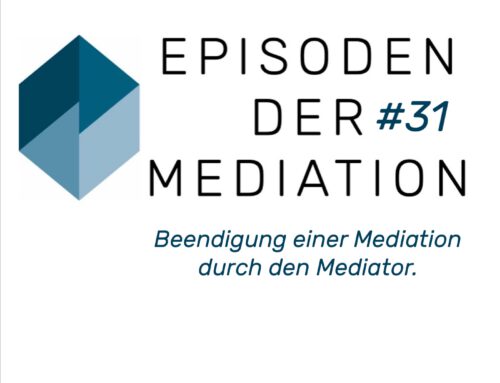INKOVEMA Podcast „Well through time“
#46 - History of counselling III - Comeback of counselling in the postmodern era - Counselling without advice
What we do when the world transforms itself during our next step. In conversation with Haiko Wandhoff
Well through time. The podcast about mediation, conflict coaching and organisational consulting.
Haiko Wandhoff, Professor of Older German Literature at Humboldt University in Berlin, works as a freelance coach, consultant and trainer. In 2016, he published his 10 historical forays through the history of counselling under the title "What should I do?" - a comprehensive historical work on the history of counselling.
This episode concludes our short series on the „history of counselling“.
Contents:
Information on the "History of Counselling" series
Contents:
-
In Part 1 we fly over the Antiquity and the Middle Ages and learn various ideas for counselling.
-
Part 2 leads into the Early modern times and modernityespecially in the era of the Clarificationwhich was also a turning point for the idea of counselling, the result of which was a deep Counselling scepticism brought with it.
-
Part 3 will once again be dealing with a fundamental change that is taking place in the Postmodernism and the concept of the Counselling without advice led.
Central idea
...of this series is to gain a deeper understanding of today's counselling phenomena:
- What happens to the people involved in a counselling process beforehand when one person wants advice and the other prepares to give it?
- What influence does the advice have on the cognitive self-counselling processes - and what is the basic function of the advice?
- How does counselling relate to other forms of influencing communication? Proselytising, teaching, mentoring and commanding and other forms of domination?
- Why does everything that is offered in terms of counselling seem to have to be systemic?
- What's with the suggestion that advice is also a slap in the face?
- Why is our company called a consulting company?
- And how is it that you can hardly do any job with any seriousness today without immediately being courted with a counselling offer?
Contents of part 3:
- Review and summary -Trust as a counselling resource Building trust by means of writings Prince's mirror and advice literature
- Counselling services and demand for advice Enlightened counselling scepticism and psychoanalysis Organised modernity and the need for specialist counselling Social welfare and state counselling Liberal Taylorism, state socialist collective farms and national socialist people's enterprises
- Luhmann's control scepticism and systems theory turnaround Biological systems theory, Maturana and Varela Anti-romanticism and anti-counterculture of systems theory Hypnosis and hypnosystemic counselling M. Erikson and G. Schmidt
- Marriage between existentialist humanism and systems theory The whole person at the centre (flora and fauna in the shade!) and deconstruction of the human being in systems theory (feeling love and thinking systems, Maturana)
- Path to the consulting company Unleashing of the economy towards a globalised economy Individualisation and Americanisation of personalities Technological developments and complexities of everyday life (DOS computers) Expert advice and interpersonal communication
- A look into the future
-
- Technologisation and digitalisation of consulting
- Advice from artificial intelligence via the Internet
- Counselling as the teaching and practice of dealing with people
Left:
- Website for the book (publisher's page): "What should I do?", Corlin-Verlag, 2016.





Leave A Comment